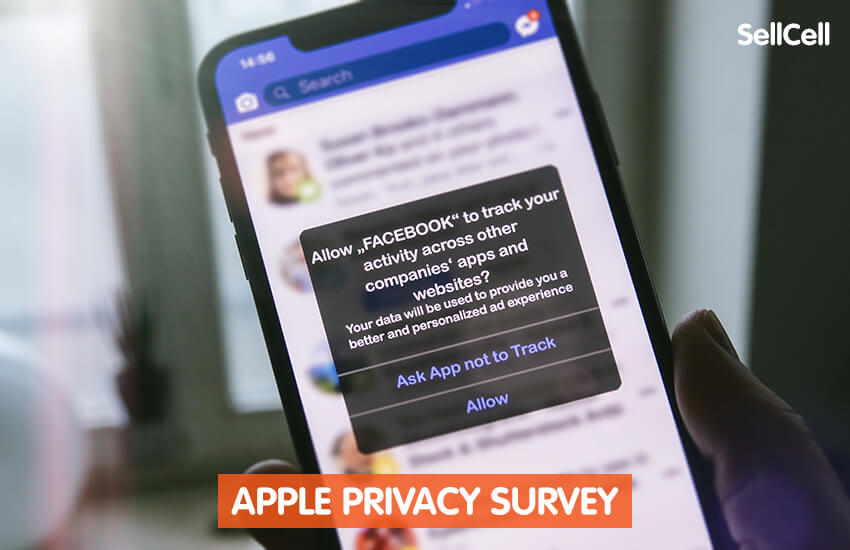Last updated September 13, 2021
Apple introduced a slew of radical new privacy improvements to its iPhone and iPad lineup with the rollout of recent iOS and iPadOS updates.
The new features, which include App Store privacy labels, are part of the firm’s latest efforts to bolster user privacy.
Camera/mic recording indicators, Safari in-browser password monitoring, approximate location sharing, and clipboard access alert are among the other new prominent security features of iOS.
And with Apple expected to roll out the controversial tracking prompts feature in the Spring now, we surveyed more than 2000 iPhone and iPad users in the US to understand their attitude towards online privacy, what they think about Apple’s new privacy policies, and more.
Survey highlights:
- A majority (72%) of iPhone & iPad users are aware of new privacy changes in recent software updates.
- When asked how well they understand Apple’s new privacy policies, these were the responses: Extremely well (13%), Very well (29%), Moderately well (21%), Slightly well (9%), and Not well at all (28%).
- Two in three (65%) users are “extremely” or “very” concerned about their activities being tracked as they use certain websites and apps, while only 14% said they were not at all concerned.
- As Apple’s upcoming ‘App Tracking Transparency’ feature will let a user decide whether or not to allow being tracked by an app, we asked a series of related questions to understand how users might respond to such prompts.
- 65% agreed they would rather see generic ads than allow tracking between sites and apps for personalized ads, while 35% disagreed.
- 59% agreed they would opt-in to being tracked if that’s how the app delivers relevant content, while 41% disagreed.
- 48% are open to being tracked if it means not losing access to content or features they currently enjoy, while a slightly higher 52% disagreed.
- A whopping 74% of users would rather have apps track their online activities than pay for content or features that are currently free; only a mere 26% said otherwise.
- A majority (61%) disagreed when asked if they would be more likely to ‘allow’ tracking if the app in question is a familiar one like Facebook or Instagram, as opposed to 39% who agreed.
- 43% agreed they wouldn’t mind being tracked by apps that are upfront about the data collected and their applications, while 57% disagreed.
- More than half (52%) think frequent tracking prompts would negatively impact the user experience.
- As App Store privacy labels now give an overview of all sorts of data a particular app collects beforehand, we asked the survey participants whether they would refrain from downloading an app that asks for too much personal info. 57% agreed, versus 43% not in accord.
- A majority of users (~65%) said they agree with Apple’s new privacy policies, while 23% think the firm may be taking it too far. Meanwhile, another 12% aren’t sure what to make of it.
Two-thirds (65%) are ‘extremely’ or ‘very’ concerned about online privacy:
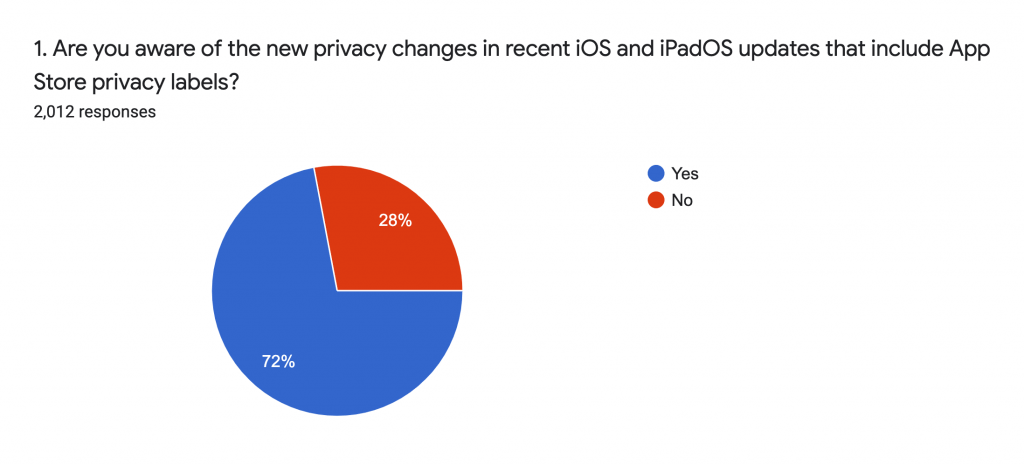
Respondents were first asked whether they know about the new privacy changes in recent iOS and iPadOS versions, to which a majority (72%) answered ‘yes.’
The respondents were asked to indicate how well they know the new privacy policy on a scale of 1 to 5, with ‘1’ being “extremely well” and ‘5’ being “not well at all,” and here are the results:
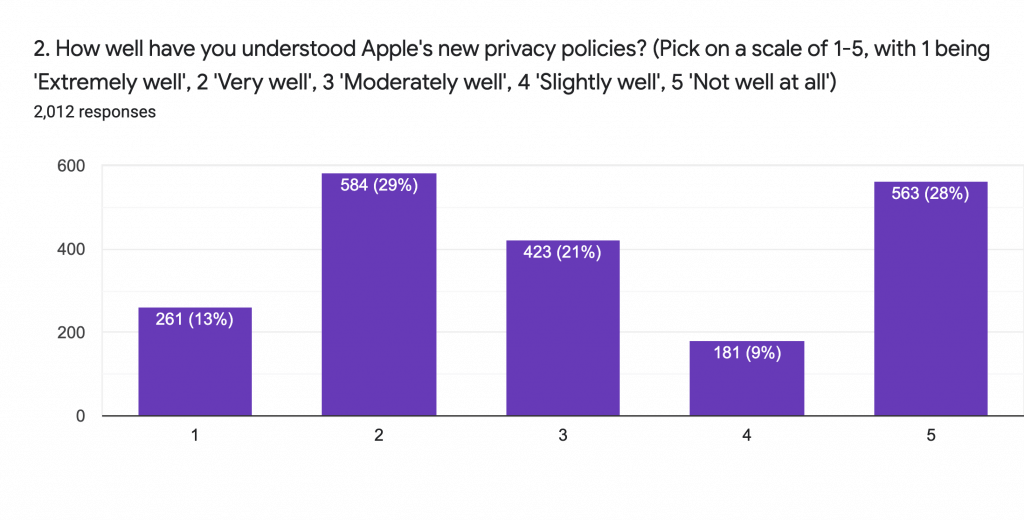
- “Extremely well” – 13%
- “Very well” – 29%
- “Moderately well” – 21%
- “Slightly well” – 9%
- “Not well at all” – 28%
More than 2000 iPhone and iPad users were asked to indicate how concerned they were about their activities being tracked online as they use certain websites and apps, and the results are as follows:
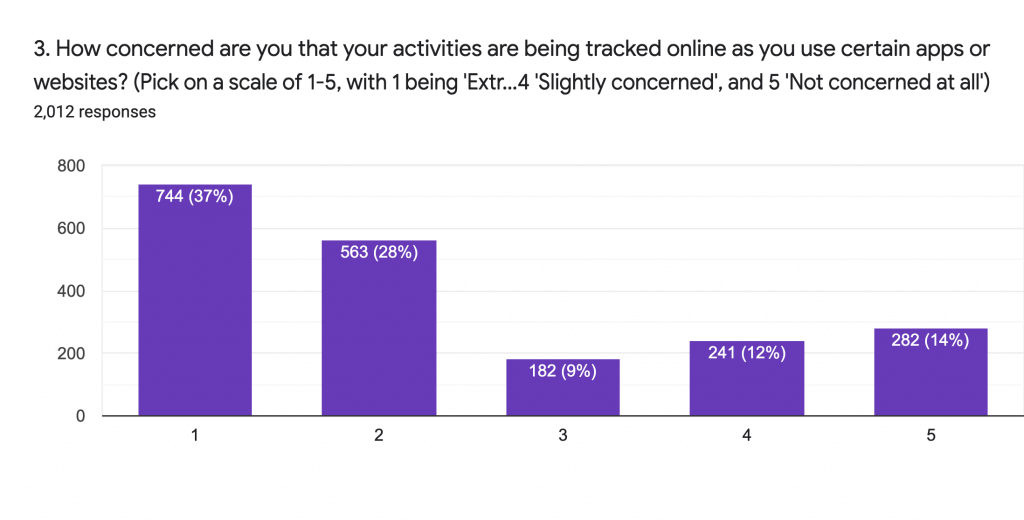
- “Extremely concerned” – 37%
- “Very concerned” – 28%
- “Moderately concerned” – 9%
- “Slightly concerned” – 12%
- “Not concerned at all” – 14%
But a majority would rather sacrifice their privacy than make tradeoffs:
Many apps can show relevant ads and content based on our interests only because they track us across the Internet. The upcoming ‘App Tracking Transparency’ prompt feature on iOS and iPadOS devices will let us control whether or not to allow apps to track our online behavior.
With this in mind, we asked the iPhone, iPad users whether they would be in favor of tracking if that would mean more personalized ads. And here’s what we found out:
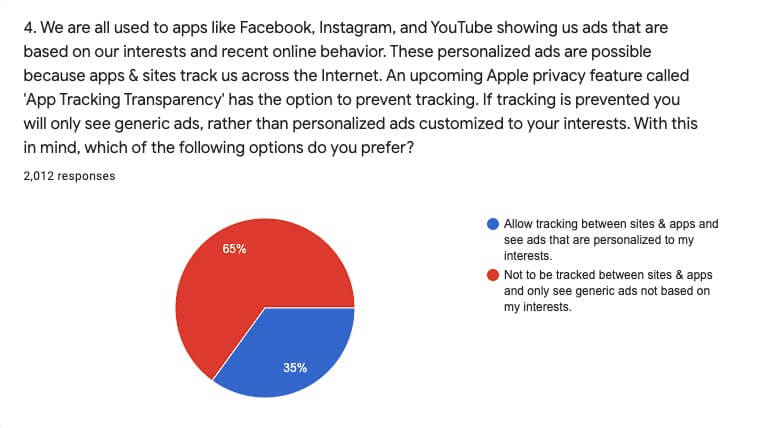
- Only 35% said they would allow app tracking to see personalized advertisements,
- Whereas 65% prefer not to be tracked between sites and apps for relevant ads and would rather be content with generic ads not based on their interests.
Next, we asked a series of agree-disagree questions to understand how much factors such as free access, relevant content, etc., would influence users to opt-in to tracking, and here are the results:

- 59% agreed they would allow tracking if that’s how the app delivers content relevant to them, while 41% disagreed.
- 48% agreed they would allow tracking if it means not losing access to content or features they currently enjoy, while a slightly higher 52% disagreed.
- A massive 74% would rather have tracking enabled than pay for content or features that are currently free; only 26% said otherwise.
- Big names like Facebook and Instagram don’t get special treatment from users, as 61% disagreed they would opt-in to being tracked if the app in question is a familiar one.
- 43% said they would be more willing to accept being tracked if the app in question is upfront about the data collected and their applications, while 57% disagreed.
But, opt-in prompts might not be the best solution to addressing privacy concerns, as the survey reveals:
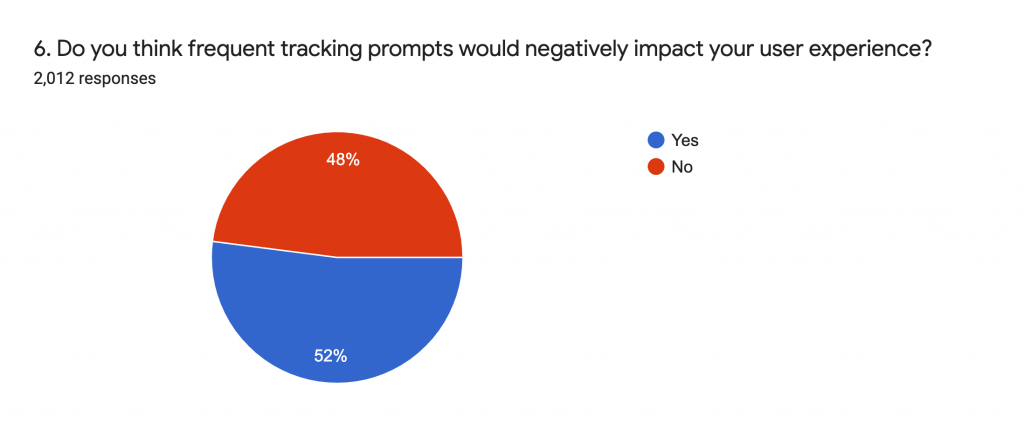
57% won’t download apps that ask for too much personal info
Apple added privacy labels to the App Store with the rollout of iOS 14.3 and iPadOS 14.3 updates, requiring developers to disclose information regarding their tracking practices.
Now that one can see what kind of data an app collects beforehand, we asked the survey-takers whether they would refrain from downloading apps that ask for too much personal information. And the results are as follows:
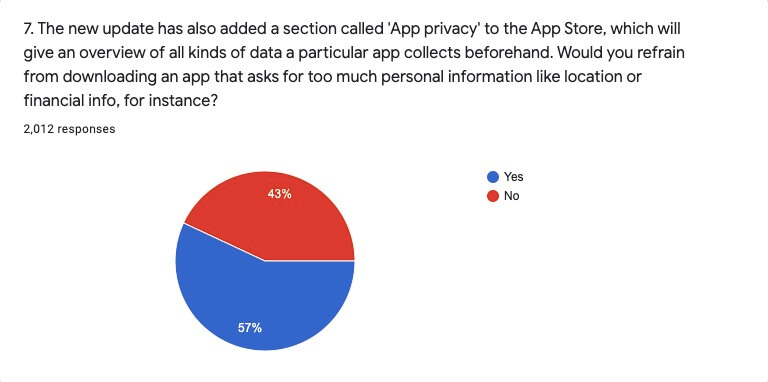
- 57% responded with a ‘yes,’ indicating they wouldn’t download apps that seek superfluous personal information.
- Whereas 43% responded negatively to this question
Conclusion
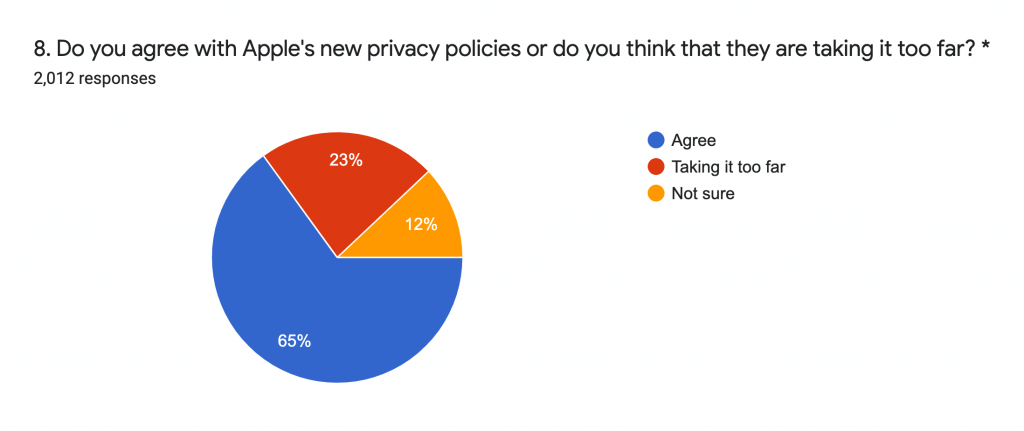
When asked whether they agree with Apple’s new stringent privacy policies, a whopping 65% responded affirmatively, while 23% said the firm might be taking it too far. Another 12% aren’t sure what to make of it.
More and more people are becoming aware of the privacy concerns associated with being tracked by apps and websites across the web.
The survey data reveals that 86% of iPhone and iPad users are at least ‘slightly’ concerned about being tracked online.
However, despite the majority being concerned about online trackers, the survey also reveals that Apple users are willing to make privacy compromises in exchange for some form of benefit.
For instance, more than seven in 10 (74%) users are willing to give in to tracking to avoid paying subscriptions on services they currently enjoy for free.
Methodology
The report is based on a survey – conducted between January 18-26, 2021 – involving more than 2000 iPhone and iPad owners, aged 18 years or older, based in the United States.
The responses to the survey were collected without storing any personally identifiable information of the involved respondents.
The motive of the survey was to analyze the privacy choices of iPhone and iPad users in the US and also to understand what they think about Apple’s new privacy policies.
